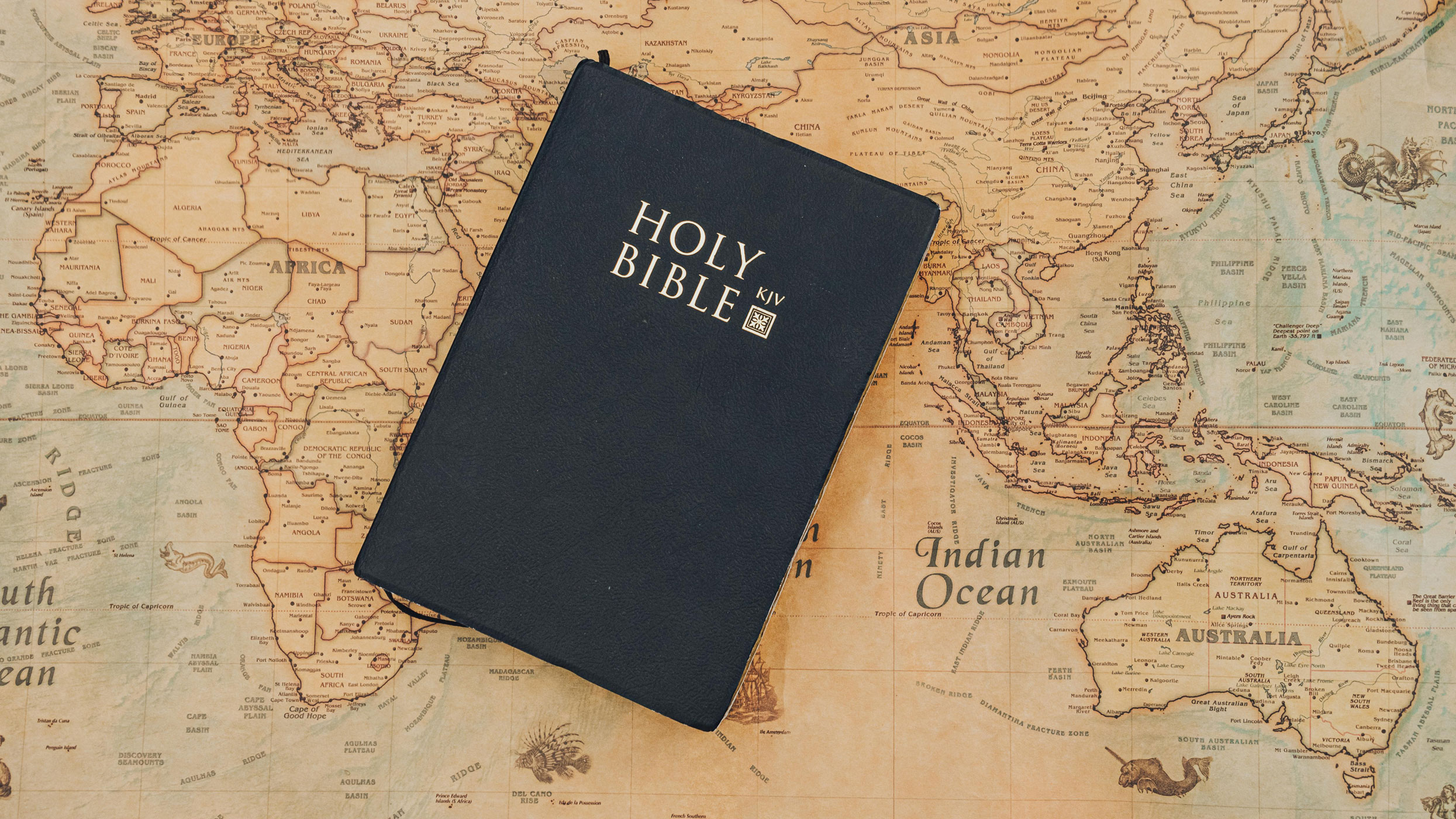In Defense of Small “c” Catholicity

One of the possible reasons why many evangelical churches shy away from reciting The Apostles’ Creed in their weekly services is this line: “I believe in the Holy Spirit, the holy catholic church.” Why should we recite that when we are not catholic? Yes, we are evangelicals (or Protestants, or born-again Christians, as some would prefer), and we are also catholic, but not Roman Catholics.
I know it sounds confusing, and even suspicious, to many who identify themselves as Protestant evangelicals since the word “catholic” evokes association with the Roman Catholic Church. Many think that to be “catholic” is necessarily to be “Roman Catholic,” as if the Roman Catholic Church has an exclusive claim to that term. That is why some of those who still recite the Apostles’ Creed in their churches replace the word “catholic” with more acceptable terms such as “Christian” or “universal.” To do so is unfortunate because it entails losing the richness of the word “catholic.”
The word “catholic” comes from the Greek katholikos, which means “universal,” “whole,” or “general.” The adverb katholou appears in Acts 4:18, which means “completely” or “at all.” Although “catholic” is not usually applied to the church in the New Testament—an exception is Acts 9:31, where it is used as a preposition to refer to “the church throughout (kath’-olēs) Judea and Galilee and Samaria”—the concept is thoroughly biblical. The term “church” is often used in the New Testament to refer to a local assembly (e.g., Gal. 1:2, 22). But it is also occasionally used to refer more generally to “the church” as a whole, i.e., to the body of Christ transcending local expression (e.g., Eph. 1:22; 5:23). This is catholicity. The “universal” church is one body with many members, spread out geographically. The church is one body even if its members are gathered from many nations (1 Cor. 12:12–14; Gal. 3:27–28).
Many in church history have reflected on catholicity (universality) as one of the four attributes of the church—along with oneness (unity), holiness, and apostolicity. These attributes are derived from the text of the Nicene Creed: “And we believe in one holy catholic and apostolic church.”
What do we confess when we say that the Church is catholic? Zacharias Ursinus, the principal author of the Heidelberg Catechism, details three aspects of the church’s catholicity:
…first in respect to place; because it is spread over the whole world, and is not tied or restricted to any particular place, kingdom, or certain succession… Secondly, in respect to men, because the church is gathered from all classes of men of every nation. Thirdly, in respect to time, because it will endure throughout every period of the world…and because there is only one true Church of all times, which is of such a peculiar constitution as to embrace the whole world, and not to be tied down to any one particular place.1
The church is catholic because it is universal and all-encompassing. To affirm the church’s catholicity is to confess that there is just one church at all times, spread across all places and all peoples. Ignatius of Antioch wrote in his letter to the church in Smyrna: “Where Christ Jesus may be, there is the catholic church.”2 Or, as Jesus himself said, “For where two or three are gathered in my name, there am I among them” (Matt. 18:20 ESV).
This catholic impulse is one of the reasons why the 16th-century Reformers were adamant in defending themselves against Rome’s charge of schism. In response to this serious charge, the Reformers insisted that it was not they who were “uncatholic,” but Rome. John Calvin defends the Reformation as a work toward restoration of the corrupted church “to the right norm of the gospel.”3 Matthew Barrett argues from a historical-theological perspective that “the Reformation is not a story of a rebellious departure from the church catholic but a story of renewal” and, as such, should be defined “on its own terms, as a movement of catholicity” and could be labeled as “a renewal of evangelical catholicity.”4
Our Protestant forebears affirm the church’s catholicity. Neglecting to teach this essential attribute of the church contributes to the confusion and suspicion of many evangelicals about the term “catholic.” Therefore, a rediscovery of this aspect of biblical ecclesiology is necessary. Like the term Trinity, catholicity is a theological concept that is biblical, even though the term is not found in any Scriptural passage. That is why we have to learn how to draw this concept from the witness of the biblical passages that deal with God’s trinitarian nature, his purposes in creation and redemption, and his design for the church.5
A thorough biblical treatment of catholicity is beyond the scope of this article. So let me just highlight some of its implications.
Since the pandemic, we have seen a heightened emphasis among many evangelical leaders about the importance of the local church and of being an active participant in its ministry. Indeed, we should see the beauty of the smallness of a local church situated in a particular locality. But to gaze too long at its local expression can cause us to be myopic and even blind to the grandeur of the church’s universality, that is, its catholicity.
We should love our own local churches, be loyal to our denominational affiliations, and prize our doctrinal distinctions. But we should do all those things without looking down on other traditions or isolating ourselves from other churches. On the other hand, there are those who cherish one’s membership in the universal church while at the same time denigrating the importance of local church membership. That is not consistent, either, with a catholic spirit.
The church is both universal and local. So, to be catholic is to see your local church as an expression of the Body of Christ while recognizing at the same time that that particular expression does not fully represent his whole Body. No single local church is Christ’s bride. The whole church is. Miroslav Volf reflects on what catholicity entails for a local church’s relationship with other local churches:
The minimal requirement for catholicity with regard to relations between churches is the openness of each church to all other churches. A church that closes itself off from other churches of God past or present, or a church that has no desire to turn to these churches in some fashion, is denying its own catholicity. A church cannot reflect the eschatological catholicity of the entire people of God and at the same time isolate itself from other churches.6
There are still varying theological persuasions even among those who identify themselves as evangelicals. There are paedobaptists and credobaptists, cessationists and non-cessationists, adherents of dispensationalism and progressive covenantalism, Presbyterian and Congregational. But we embody a catholic spirit when brothers and sisters with differing theological persuasions can unite around the gospel and explore ways to work toward common aspirations for the sake of Christ and his church.
For centuries, we evangelicals have sought to divorce “Protestant” from anything “catholic.” It is high time that we bring the two together. As Jason Hallig puts it, “The Protestant heritage is a catholic heritage. The challenge is for evangelicals, as we are all known today, to remain catholic.”7
I look forward to a time, sooner rather than later, when we evangelicals can say without hesitation, “We are catholic, too!” I know it can take some time before we become more comfortable with the term “catholic” and embrace it without hesitation. But, at least, I hope that more churches will grow in their understanding of the catholic nature of the church and walk consistently in that spirit.
- 1 Zacharias Ursinus, The Commentary of Dr. Zacharias Ursinus on the Heidelberg Catechism, trans. G. W. Williard (Cincinnati, OH: Elm Street Printing Company, 1888), 289–90.
- 2 Cited in Edmund P. Clowney, The Church, Contours of Christian Theology (Downers Grove, IL: InterVarsity Press, 1995), 91.
- 3 “A Reply to Sadoleto,” in John Calvin, The Necessity of Reforming the Church, trans. Casey Carmichael (Orlando, FL: Reformation Trust Publishing, a division of Ligonier Ministries, 2020), 98.
- 4 Matthew Barrett, The Reformation as Renewal: Retrieving the One, Holy, Catholic, and Apostolic Church (Grand Rapids: Zondervan, 2023), 32, emphases his.
- 5 See C. Ryan Fields, Local and Universal: A Free Church Account of Ecclesial Catholicity, Studies in Christian Doctrine and Scripture (Downers Grove, IL: IVP Academic, 2024), 21–60.
- 6 Miroslav Volf, After Our Likeness: The Church as the Image of the Trinity (Grand Rapids, MI: Eerdmans, 1998), 275.
- 7 Jason Valeriano Hallig, We Are Catholic: Catholic, Catholicity, and Catholicization (Eugene, OR: Wipf & Stock, 2016), chap. 6.

